More commodity inflation beckons as war boosts coal
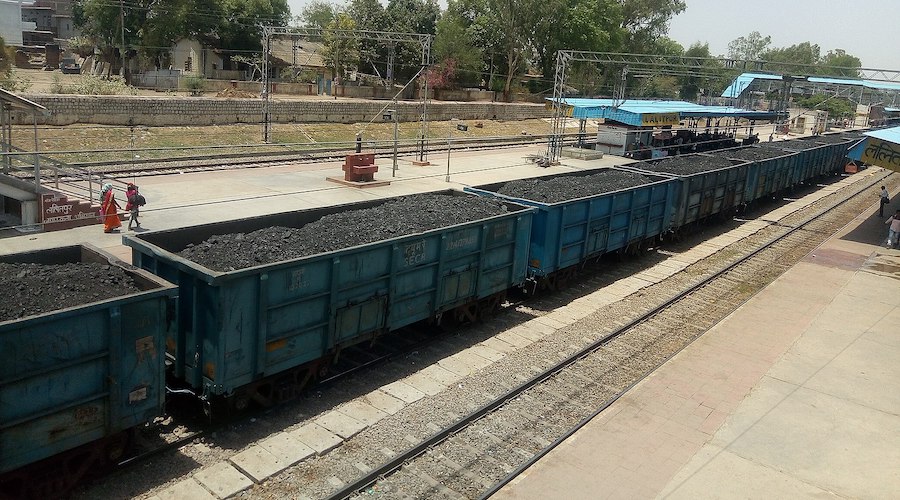
The global commodity business can get a whole lot more expensive — and dirtier, too.
The war and pandemic-fueled shortage of raw materials appear poised to fuel what’s already the biggest surge in commodity prices in decades, according to the latest MLIV Pulse survey conducted June 6-10. At the same time, demand for fossil fuels is only expected to rise as Europe seeks to shift away from Russian energy, dashing any immediate hopes that high prices will foster a shift to cleaner renewable sources.
A continued rise in prices would add to decades-high inflation worldwide, which is threatening to exacerbate hunger and instability in the developing world and slow growth globally as central banks raise interest rates aggressively to tame it.
The pressure has increased sharply since the outbreak of the war in Ukraine, which has imperiled its grain exports and caused much of the world to sever economic ties with Russia, a major oil producer. That’s exaggerating supply bottlenecks and shortages that have persisted since the pandemic and driven up the Bloomberg Commodity Index by about 35% this year, putting it on track for the steepest annual advance since 1979.
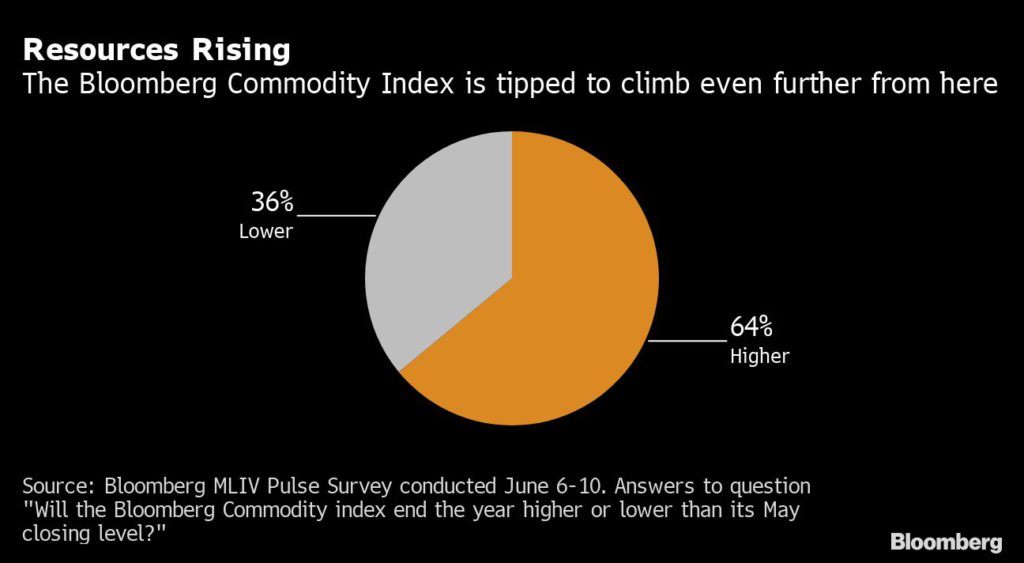
The cost of wheat will keep advancing this year, worsening an increasingly precarious global food situation, even as crude oil pulls back from its elevated levels, according to the MLIV survey, which was completed by 805 participants. Meanwhile, coal looks set to be Europe’s go-to fuel to make up for Russia-related natural gas shortfalls this winter rather than more renewable sources of power.
“The combination of the war and the supply and demand imbalances that were already in place before the war began, especially in energy, will really push up ag, base metals, precious metals and energy together,” Paul Christopher, head of global market strategy at the Wells Fargo Investment Institute, said on Bloomberg Television. “We favor strongly a broad-based commodity basket there going into the end of the year.”
Europe’s decision to cut back on Russian fuels had been seen as a potential opportunity to shift to cleaner sources of energy, but Bloomberg readers appear doubtful this will happen in the short term. Coal is likely to play a bigger role in filling Europe’s energy gap in the coming winter according to 68% of respondents in the MLIV survey, while just 32% saw renewables leading the way.
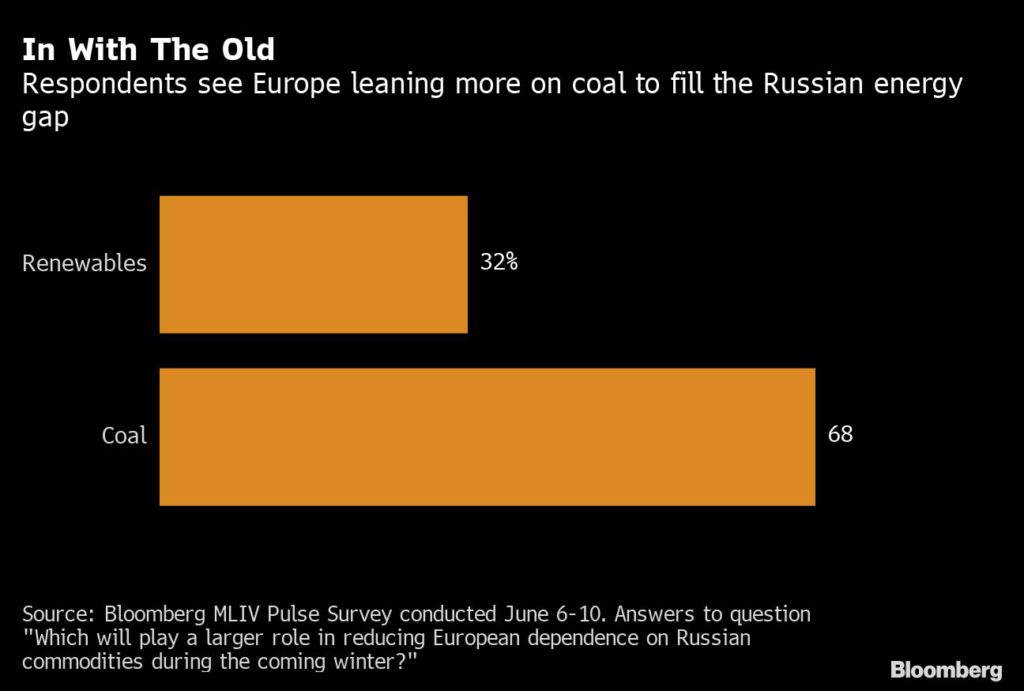
While Europe is a leader in the transition to renewables, it will struggle to install wind and solar capacity quickly enough to make up for the Russia shortfall, which is being exacerbated by unforeseen problems with nuclear power generation in France.
“The reality is they’re going to have to find their energy from someplace, and coal is going to increasingly fill that gap in certain countries,” said Matthew Sherwood, senior lead commodities analyst at the Economist Intelligence Unit. “The green-energy transition is probably going to be slower even than we were expecting in the developing world.”
A degree of skepticism about how concertedly the world is actually shifting toward cleaner energy was evident across the survey, with three-quarters of respondents saying that the world has not yet reached peak oil demand. A majority of 57%, meanwhile, said that hydrocarbon producers should be eligible for inclusion in so-called ESG funds that focus on sustainable investments.
Increased demand for oil would also enhance the power of the world’s biggest petroleum exporters, such as Saudi Arabia. Close to four-out-of-five survey respondents believed that the OPEC+ alliance is likely to be a dominant force supporting crude prices for the remainder of 2022. That shift is underscored by the recalibration of the US administration’s stance toward a Saudi regime that President Joe Biden had previously vowed to turn into a “pariah.”
The goals of reducing greenhouse gas emissions and finding fuel to keep the lights on “are definitely in conflict now,” said Andrew Blumenfeld, director of data analytics with market research company McCloskey by Opis.
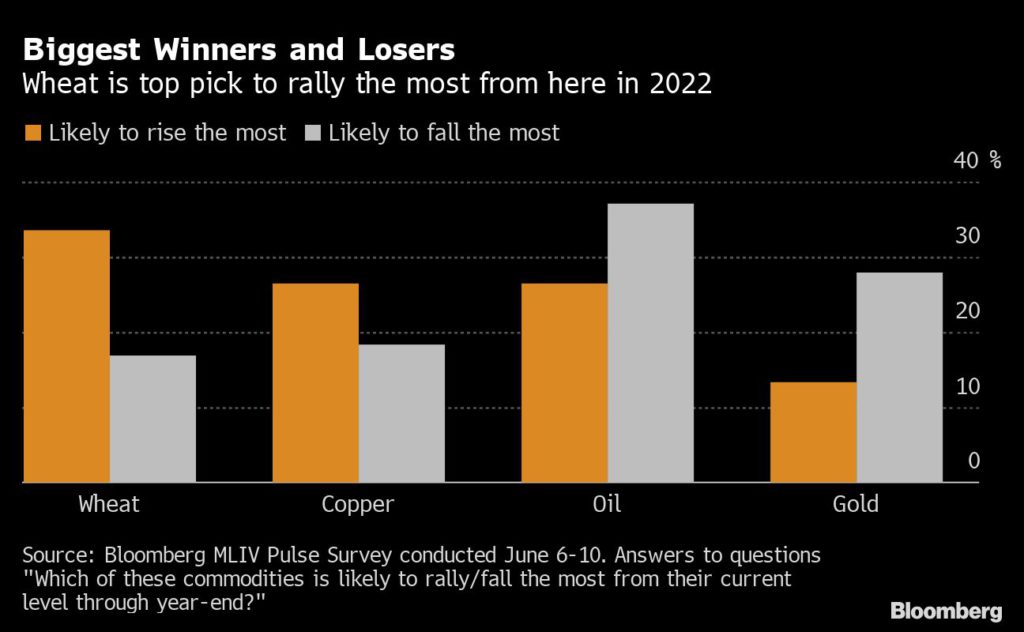
The MLIV survey shows that 64% expect the Bloomberg Commodity Index will end the year even stronger. Among four key commodities, the biggest proportion of respondents, 34%, thought that wheat would lead the gains. Close to 27% saw copper rallying most, with a similar number picking oil, with gold the laggard around 13%. Around 37% picked oil leading declines, compared with less than 17% for wheat. Crude fell a third day amid a global market selloff as Friday’s shock US inflation data put pressure on the Federal Reserve to tighten further.
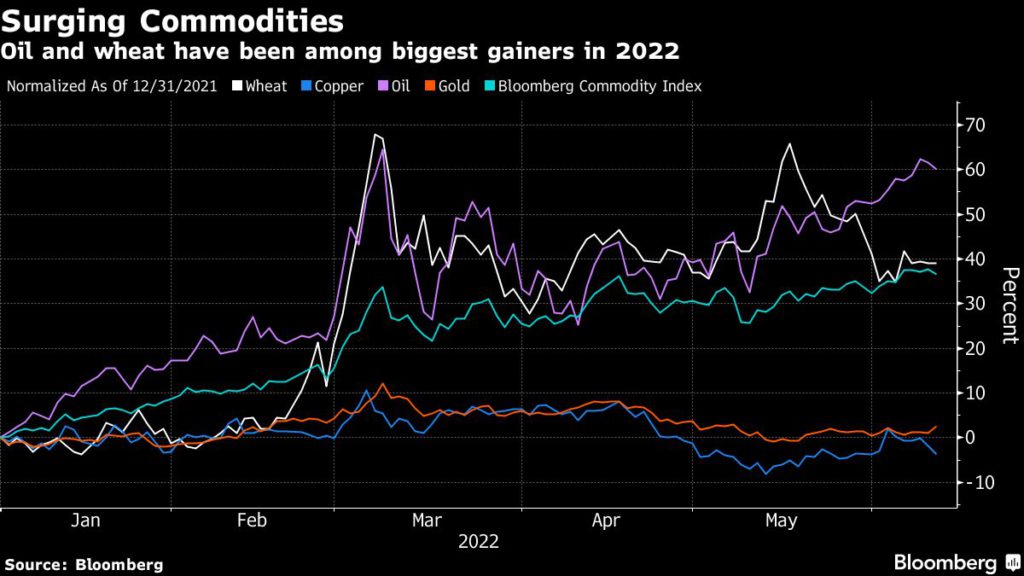
The war in Ukraine has disrupted trade in a range of cereals, cooking oils and fertilizers, sparking a record spike in prices and prompting dozens of nations, including India, to respond with food-export restrictions. This could have a domino effect that aggravates shortages in net food importers, which in turn could provide a catalyst for the types of civil unrest sparked by the 2007-2008 global food crisis.
Upward pressure on food costs is “unlikely to abate in the short term,” and that probably will have social repercussions around the world, Massimiliano Bondurri, chief executive officer of SGMC Capital, said on Bloomberg Television. And while he is skeptical that resource markets will witness a big rally much beyond current levels, “commodities are very likely to remain supported.”
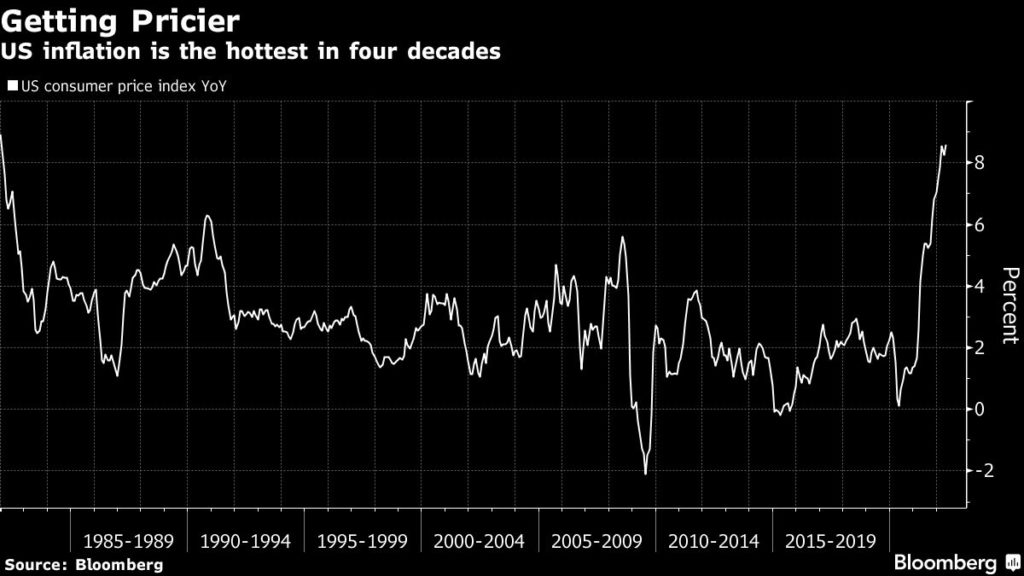
Even if raw material prices don’t climb further from here, though, most poll respondents expect inflation to remain above central bank targets. That suggests that readers see spiraling price pressures becoming more entrenched in other parts of the economy. That’s evident in the world’s largest economy, with new figures last week showing US consumer-price inflation unexpectedly accelerating to 8.6%.
“We’re planning for continued inflation for the foreseeable future,” Nick Hampton, chief executive officer of London-based food-ingredient manufacturer Tate & Lyle Plc, said on Bloomberg Television. “We’re managing our business assuming inflation will continue and it’s very difficult to predict precisely how long it’s going to go on because things are evolving so rapidly at the moment.”
(By Benjamin Purvis)
More News
{{ commodity.name }}
{{ post.title }}
{{ post.date }}




Comments